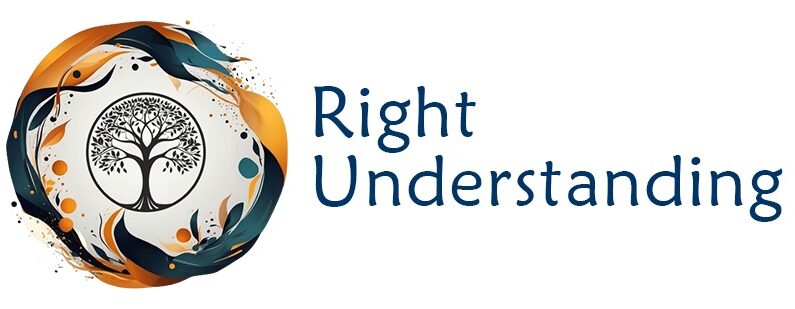Is Spirituality a Belief System?
The word “spirituality” often evokes images of incense-filled rooms, chanting monks, and esoteric rituals. This leads many to believe that spirituality is just another belief system, akin to religion, requiring blind faith and adherence to dogma. But is this truly the case?
This blog argues that spirituality, in its purest form, is not a belief system but a knowledge process. It’s about understanding yourself, your motivations, your desires, inclinations and going to the core of your very identity, not about accepting pre-packaged truths or believing in some magic.
The Knowledge Process of Adhyatma
The Sanskrit word “adhyatma” encapsulates the essence of spirituality. It refers to the study and contemplation of that which creates the mind, the source of our thoughts, emotions, and actions. This process involves:
-
Self-reflection: Asking deep questions about who you are, what you truly want, and what drives your actions.
-
Introspection: Examining your motivations, desires, and the transient nature of your pursuits.
-
Observation: Paying attention to your thoughts, emotions, and how they influence your behavior.
-
Analysis: Understanding the cause-and-effect relationships in your life, both within and without.
This continuous process of self-discovery is not about blind faith but about gaining knowledge and clarity. It’s about unraveling the layers of your being, understanding your mental patterns, and recognizing the interconnectedness of your inner and outer worlds.
Beyond Belief: The Tools of Spirituality
Just as a physicist uses tools like telescopes and equations to study the universe, spirituality employs tools for self-exploration. These tools include:
-
Language: The words we use to express our thoughts and experiences, inherited from our culture and upbringing.
-
Experiences: The events and interactions that shape our understanding of ourselves and the world.
-
Books and Scriptures: Texts that offer guidance, insights, and prompts for self-reflection.
-
Teachers and Gurus: Individuals who have walked the path of self-discovery and can offer wisdom and support.
These tools are not objects of belief but instruments for gaining knowledge. They help us navigate the complexities of our inner world and understand the fundamental truths that govern our existence.
The Simplicity of Truth
One of the most striking aspects of spirituality is the simplicity of its core principles. Concepts like karma, dharma, and moksha, while often shrouded in mystical language, are essentially about understanding cause and effect, responsibility, and liberation from suffering.
These truths are not exclusive to any religion or culture but are inherent to human nature. We already possess an intuitive understanding of these principles through our everyday experiences. Spirituality simply brings awareness to these truths, helping us live more consciously and harmoniously.
The Illusion of Duality
A common misconception about spirituality is that it promotes detachment from the world, leading to a life of passivity and indifference. However, true spirituality is about transcending duality, moving beyond binary thinking and recognizing the interconnectedness of all things.
It’s about understanding that action and inaction, joy and sorrow, are not mutually exclusive but different facets of the same reality. This realization allows us to respond to life’s challenges with equanimity, acting with clarity and compassion without getting caught in the trap of ego and desire.
The Journey of Self-Realization
The spiritual path is not about reaching a destination but about embracing the journey of self-discovery. It’s a continuous process of unraveling, understanding, and transcending the limitations of our minds.
This journey may involve challenges, setbacks, and moments of disillusionment. But with persistence, self-reflection, and the guidance of wise teachers, we can gradually cultivate a deeper understanding of ourselves and our place in the universe.
The benefits are well worth it. Just like, if we want to use something or want something, don’t you want the knowledge about it? Like a phone or car, we gain some knowledge to use it. Similarly the one thing we are with all the times is ourselves, Shouldn’t we gain knowledge about it. What we gain is we learn to handle any situation in life in the best possible way and a peace which passeth understanding.
Conclusion
Spirituality is not about blind faith or subscribing to a set of beliefs. It’s about engaging in a knowledge process, using tools and techniques to explore the depths of our being and understand the fundamental truths that govern our existence.
It’s a journey of self-discovery, a process of unraveling the layers of our minds and realizing our true nature. It’s about living more consciously, compassionately, and harmoniously, both within ourselves and in the world around us.


